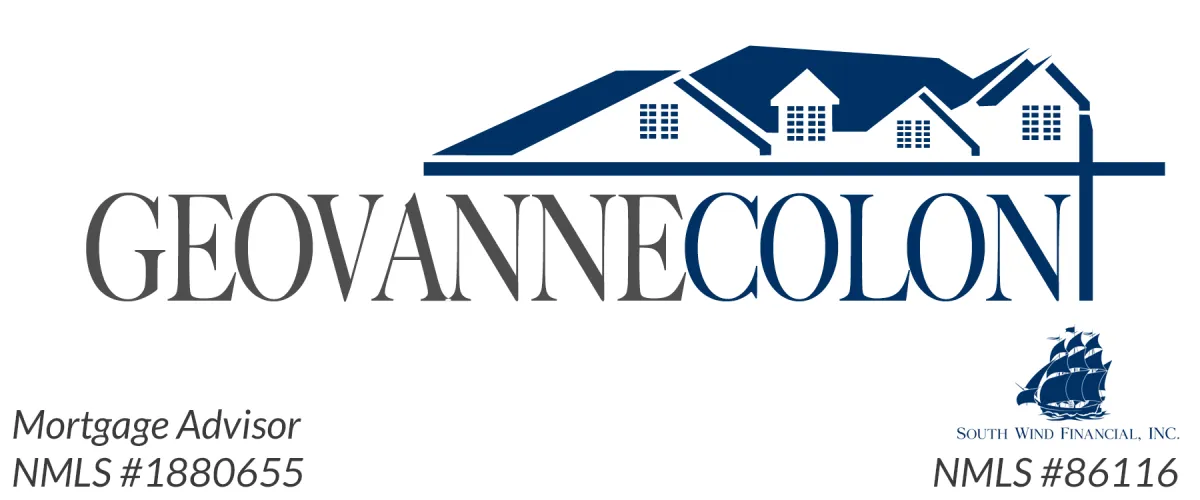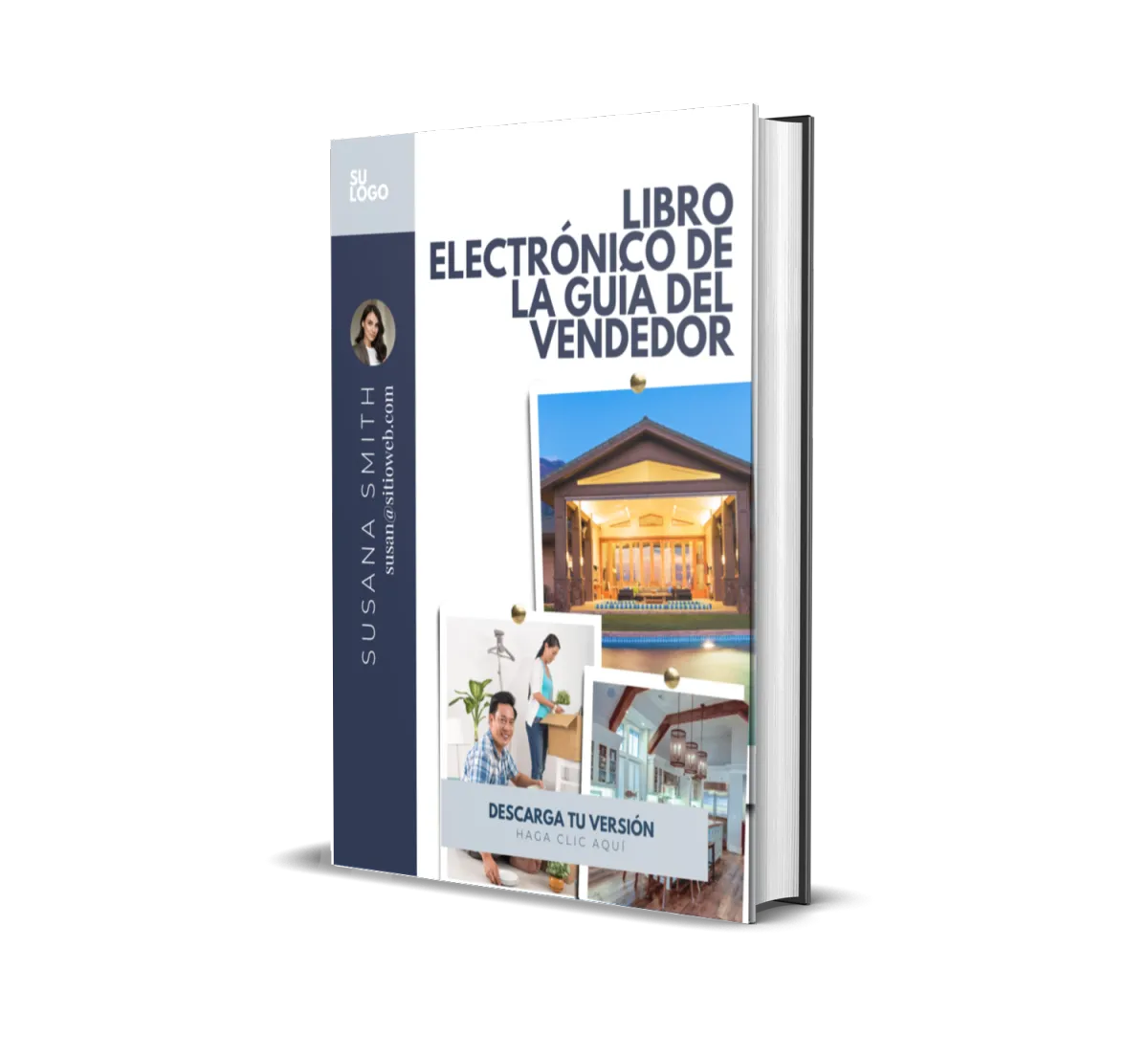617-821-1757

Looking For FHA Loans?
Apply today for the mortgage
that’s right for you.
Unlock Low Rates with Ease
Discover how Geovanne Colon simplifies the mortgage qualification process for you.
Apply today for the mortgage
that’s right for you.
Unlock Low Rates with Ease
Discover how Geovanne Colon simplifies the mortgage qualification process for you.
Low Rate.
Zero Hassles.
Get a free quote
Low Rate.
Zero Hassles.
Get a free quote
Feel Overwhelmed by Mortgage Choices? I Understand.

Feeling Lost in a Sea of Mortgage Options? Finding the right mortgage can be a daunting task. With an overwhelming array of rates, terms, and lenders, it's easy to feel lost and uncertain. Are you worried about high interest rates, hidden fees, or choosing a mortgage that doesn't fit your long-term goals?
Why Choose Us?
Ready to Start?
Your perfect home won't wait forever, and neither should you. Begin your journey today with a loan officer that puts you first. By choosing us, you're not just getting a loan – you're gaining a lifelong partner in all your mortgage endeavors.
Start your no-obligation consultation now and join the myriad of satisfied homeowners who have unlocked the doors to their future with ease and confidence. Dive into our world of simplified lending, and let's turn your homeownership dreams into reality.
Welcome Home!
Loan Programs We Help With
Seamless Solutions, Limitless Possibilities
Residential Mortgage Programs
1. FHA Loans
Federal Housing Administration (FHA) Loans
• Suitable for first-time homebuyers
• Low down payment options (as low as 3.5%)
• Requires mortgage insurance
• Lenient credit scores accepted
• 203K Renovation Loans Available
2. Conventional Loans
Conventional Mortgage Loans
• Preferred by borrowers with stronger credit
• Down payments as low as 3%
• Available in fixed or adjustable rates
• No government insurance premiums
• HomeStyle Renovation Loan Available
3. USDA Loans
US Department of Agriculture (USDA) Loans
• Ideal for eligible rural and suburban homebuyers
• Zero down payment
• Low insurance costs
• Income and geographic restrictions apply
4. VA Loans
Veterans Affairs (VA) Mortgage Loans
• Exclusively for veterans, active-duty service members, and eligible spouses
• No down payment required
• No mortgage insurance needed
• Competitive interest rates
A. ITIN - No Social Security Loans
• For borrowers with an Individual Tax Identification Number
• Lacks Social Security number
B. 1099 Loans
• Designed for independent contractors or self-employed individuals
• Based on the 1099 tax form income
C. VOE Only
• Verification of employment as the primary source of income validation
D. Asset Depletion
• Utilizes borrower's liquid assets for qualification purposes
E. Bank Statement Loans
• Income based on bank statements, suitable for self-employed borrowers
F. DSCR - Investor No Income Verification
• For real estate investors, using property cash flow as a qualification metric
Non-Qualified Mortgage (Non-QM) Loans
Loan Programs We Help With
Seamless Solutions, Limitless Possibilities
Residential Mortgage Programs
1. FHA Loans
Federal Housing Administration (FHA) Loans
• Suitable for first-time homebuyers
• Low down payment options (as low as 3.5%)
• Requires mortgage insurance
• Lenient credit scores accepted
2. Conventional Loans
Conventional Mortgage Loans
• Preferred by borrowers with stronger credit
• Down payments as low as 3%
• Available in fixed or adjustable rates
• No government insurance premiums
3. USDA Loans
US Department of Agriculture (USDA) Loans
• Ideal for eligible rural and suburban homebuyers
• Zero down payment
• Low insurance costs
• Income and geographic restrictions apply
4. VA Loans
Veterans Affairs (VA) Loans
• Exclusively for veterans, active-duty service members, and eligible spouses
• No down payment required
• No mortgage insurance needed
• Competitive interest rates
Non-Qualified Mortgage (Non-QM) Loans
A. ITIN - No Social Security Loans
• For borrowers with an Individual Tax Identification Number
• Lacks Social Security number
B. 1099 Loans
• Designed for independent contractors or self-employed individuals
• Based on the 1099 tax form income
C. VOE Only
• Verification of employment as the primary source of income validation
D. Asset Depletion
• Utilizes borrower's liquid assets for qualification purposes
E. Bank Statement Loans
• Income based on bank statements, suitable for self-employed borrowers
F. DSCR - Investor No Income Verification
• For real estate investors, using property cash flow as a qualification metric
More Loan Programs
Foreign National Loans
• Tailored for non-U.S. citizens looking to buy investment or vacation properties in the U.S.
• May require larger down payments and proof of foreign income.
Jumbo Loans
• Exceed the loan limits set by the FHFA for conventional mortgages.
• Requires non-traditional underwriting to accommodate the larger loan amount.
Real Estate Investor Loans
• Customized loans for experienced real estate investors.
• Can include options for multiple properties under a single loan (blanket loans).
Non-Warrantable Condo Loans
• For condos that do not meet specific requirements by Fannie Mae or Freddie Mac.
• Necessary for financing condos in buildings with more owner-occupied spaces or litigation issues.
Credit Event Loans
• Available to borrowers with significant derogatory credit events, such as bankruptcy or foreclosure.
• Typically requires a higher down payment or additional reserves.
Hard Money/Private Lending
•For immediate or short-term financing needs
• Higher-cost, short-term loans
• Asset-based lending criteria
• Terms typically around 12 months
Fix and Flips
• Loans crafted for renovating and flipping properties
Commercial Loans
•Tailored for businesses to purchase or refinance commercial property
• Offering solutions for office buildings, retail spaces, and industrial properties
• Custom terms to align with business strategies
New Construction
• Financing for ground-up construction projects
Small Business Administration (SBA) Loans
• Federally backed to help start or grow a business
• Lower down payments
• Longer repayment terms
• Focused on small businesses
Bridge Loans
• Short-term loans to bridge the gap during transitional periods
Down Payment Assistance Programs
• Provides prospective homebuyers with loans or grants that they can use toward the down payment for a house.
• Most down payment assistance programs are designed for first-time homebuyers and offered by various institutions, such as government, non-profits, or lenders.
More Loan Programs
Foreign National Loans
• Tailored for non-U.S. citizens looking to buy investment or vacation properties in the U.S.
• May require larger down payments and proof of foreign income.
Jumbo Loans
• Exceed the loan limits set by the FHFA for conventional mortgages.
• Requires non-traditional underwriting to accommodate the larger loan amount.
Real Estate Investor Loans
• Customized loans for experienced real estate investors.
• Can include options for multiple properties under a single loan (blanket loans).
Non-Warrantable Condo Loans
• For condos that do not meet specific requirements by Fannie Mae or Freddie Mac.
• Necessary for financing condos in buildings with more owner-occupied spaces or litigation issues.
Credit Event Loans
• Available to borrowers with significant derogatory credit events, such as bankruptcy or foreclosure.
• Typically requires a higher down payment or additional reserves.
Hard Money/Private Lending
•For immediate or short-term financing needs
• Higher-cost, short-term loans
• Asset-based lending criteria
• Terms typically around 12 months
Fix and Flips
• Loans crafted for renovating and flipping properties
Commercial Loans
•Tailored for businesses to purchase or refinance commercial property
• Offering solutions for office buildings, retail spaces, and industrial properties
• Custom terms to align with business strategies
New Construction
• Financing for ground-up construction projects
Small Business Administration (SBA) Loans
• Federally backed to help start or grow a business
• Lower down payments
• Longer repayment terms
• Focused on small businesses
Bridge Loans
• Short-term loans to bridge the gap during transitional periods
Down Payment Assistance Programs
• Provides prospective homebuyers with loans or grants that they can use toward the down payment for a house.
• Most down payment assistance programs are designed for first-time homebuyers and offered by various institutions, such as government, non-profits, or lenders.
Who We Help?
Seamless Solutions, Limitless Possibilities
First Time Home Buyers
We know how overwhelming the process of buying a home is, especially if it is the first time that you're doing it. We will work closely with you to explain the process, to protect you from making mistakes that could cost you later, and to ensure that your mortgage gets approved and you get the home that you are so excited to be buying!
Move Up and Second Home Buyers
Buying a new home when you currently own one has it's own unique set of concerns. We can answer all of your questions about how to qualify and purchase a home when you already own one whether you're buying a new primary residence or a second vacation home.
Refinancing Home Owners
If you already own your home but you are looking to refinance to either save money with a lower interest rate or possibly take some cash out for any reason, we can help you with that. We also can show you how to make sure you are structuring your new financing to get the best deal possible.
Investment Buyers
If you're buying real estate for investment purposes, we can help you secure low rate financing to maximize your ROI.
Seniors Seeking Reverse Mortgages
If you are 62 years or older and are looking for options to stay in your home without a mortgage payment or to access your home's equity while still living there, I can answer your questions about reverse mortgages so you can decide if they are right for you.
What My Clients Say
Ready to Find Your Perfect Mortgage?
Are You A First Time Home Buyer?
Download Our Free Home Buyer's Guide

Other Resources You'll Find Helpful

Buyer's Guide for Real Estate Agent
(English)

Buyer's Guide for Real Estate Agent
(Spanish)

Seller's Guide for Real Estate Agent
(English)

Seller's Guide for Real Estate Agent
(Spanish)
Calculate Your Mortgage Payment
Our Blogs

DSCR Loan: Mortgage for Investors - Debt Service Coverage Ratio & Cash Flow
DSCR Loan: Mortgage for Investors - Understanding Debt Service Coverage Ratio & Cash Flow
Welcome to a comprehensive guide on DSCR loans, a unique financing option tailored for real estate investors looking to leverage their property with a DSCR. This article dives deep into understanding the Debt Service Coverage Ratio (DSCR) and how it plays a pivotal role in securing a type of mortgage for investment properties. Whether you're a seasoned investor or just starting out, understanding DSCR loans can unlock new investment opportunities in real estate.
What is a DSCR Loan?
A DSCR loan is a specialized mortgage for real estate investors, focusing on the property's cash flow and allowing them to qualify for a mortgage based on investment income rather than personal income. Unlike traditional loans that heavily rely on an individual's personal income and credit history, DSCR loans focus on the property's ability to generate sufficient cash flow to cover its debt obligations. This distinction makes them an attractive financing option for purchasing rental properties.
Definition of DSCR
The Debt Service Coverage Ratio (DSCR) measures a property's ability to repay its mortgage. The Debt Service Coverage Ratio (DSCR) is a key metric used by lenders to assess a property's capacity to repay a mortgage loan and qualify for the loan. The DSCR is calculated by dividing the property's net operating income by its total debt service, including principal, interest, taxes, and insurance. A good DSCR ratio, typically 1.25 or higher, indicates that the property generates enough income to comfortably cover its debt payments, which is crucial for the DSCR calculation. The Debt Service Coverage Ratio (DSCR) ratio is critical for lenders to determine whether the borrower can manage the property's debt obligations in the context of home loans.
How DSCR Loans Work
DSCR loans rely on rental income to cover mortgage payments, making them a popular choice for real estate loans. DSCR loans operate on the principle that investment properties should generate enough rental income to cover the mortgage payment and other associated expenses. Lenders evaluate the property's cash flow to determine the DSCR ratio. If the ratio meets or exceeds their minimum requirements, the real estate investor can qualify for a DSCR loan. The better the DSCR, the lower the risk for the lender and the more favorable the loan terms for the borrower.
Differences Between DSCR Loans and Traditional Mortgages
DSCR loans prioritize property cash flow, unlike traditional mortgages that focus on personal income, making them a type of non-qualified mortgage. The fundamental difference between DSCR loans and traditional loans lies in the qualification criteria. Traditional loans heavily scrutinize the borrower's personal income, credit score, and debt-to-income ratio. In contrast, DSCR loans prioritize the property's cash flow. For real estate investors, this means they can qualify for a mortgage even if they don't meet the stringent income requirements of traditional loans. DSCR loans offer a pathway for real estate investors looking to expand their portfolio without the constraints of conventional financing. DSCR loans offer real estate investors flexibility that traditional mortgages do not.
Understanding Debt Service Coverage Ratio
What is Debt Service Coverage Ratio?
The Debt Service Coverage Ratio (DSCR) is a financial metric that assesses a borrower's ability to repay a loan using property income. The Debt Service Coverage Ratio, often shortened to DSCR, is a critical financial metric that lenders use to evaluate a potential borrower's ability to repay a mortgage loan. Specifically, it measures whether a property generates enough net operating income to cover its debt obligations, which is a key aspect of any debt service coverage ratio loan. This ratio is a cornerstone of any DSCR loan program, especially for real estate investors looking at investment properties. A higher DSCR generally indicates a lower risk for the lender.
How to Calculate the DSCR
DSCR is calculated by dividing net operating income by total debt service, forming the basis of the DSCR financing model. The DSCR is calculated by dividing the property's net operating income by its total debt service. The net operating income represents the revenue a property generates after deducting operating expenses, but before accounting for debt service. The debt service includes the mortgage payment, property taxes, insurance, and other fees. The formula provides a clear picture of whether a property can cover its mortgage and other financial commitments, making it a key element in the DSCR loan process and essential for calculating loan payments.
Importance of a Good DSCR Ratio
A good DSCR signifies lower risk for lenders and better loan terms for borrowers, particularly when considering non-QM loans. A good DSCR ratio is vital for both lenders and borrowers. For lenders, a DSCR ratio of 1.25 or higher signifies that the property generates enough cash flow to comfortably cover the mortgage loan and other expenses, thus reducing the risk of default. For borrowers, a healthy DSCR can lead to more favorable loan terms and increased financial stability. A good DSCR ratio demonstrates to the lender that the real estate investor can comfortably manage the loan.
Benefits of a DSCR Loan for Real Estate Investors
Advantages of DSCR Loans
DSCR loans enable qualification based on property income, not personal income. DSCR loans offer numerous advantages for real estate investors. One of the most significant benefits is that qualification is primarily based on the property's ability to generate income, rather than the investor's personal income. This opens doors for investors who may not qualify for traditional loans due to income constraints. DSCR loans offer a streamlined financing option, enabling real estate investors looking to expand their portfolios.
Why DSCR Loans are Ideal for Real Estate Investors
DSCR loans are ideal for real estate investors because they focus on property cash flow. DSCR loans are particularly ideal for real estate investors because they focus on the property's cash flow. Real estate investors looking to acquire rental properties will often find that DSCR loans align perfectly with their investment strategy, especially when managing cash flow to repay the loan. DSCR loans offer the flexibility to invest in multiple properties without being hindered by personal income restrictions. DSCR loans offer a practical solution for real estate investors seeking to enhance their investment opportunities without relying on personal income.
Cash Flow Considerations
Analyze property cash flow thoroughly when considering a DSCR loan. When you’re considering a DSCR loan, it's crucial to analyze property cash flow thoroughly to ensure it meets the necessary criteria. Understanding the gross rental income and all operating expenses is vital for accurately assessing the DSCR ratio. A property with strong, consistent cash flow will be more likely to qualify for a DSCR loan and provide a solid return on investment for the real estate investor. Prudent cash flow management is essential for successfully leveraging DSCR loans, especially when determining the minimum loan amount needed. DSCR loans allow real estate investors to focus on growing their property portfolio while ensuring they meet the criteria of the DSCR program, which is essential for qualifying for the loan.
Investment Properties and DSCR Loans
Using DSCR Loans for Rental Investment
DSCR loans are a strategic financing option for expanding a rental property portfolio. For real estate investors looking to expand their portfolio with rental properties, DSCR loans offer a strategic type of financing, especially within the DSCR program. The focus on property cash flow rather than personal income makes it easier to qualify for a mortgage loan. The DSCR loan program is designed for those seeking investment properties, assessing the debt service coverage ratio based on the property's potential rental income. The DSCR loan allows real estate investors to buy more rental properties.
How Rental Income Affects DSCR
Higher rental income leads to a more favorable DSCR. Rental income is a crucial factor in determining the debt service coverage ratio. A higher gross rental income, relative to the annual mortgage debt, results in a more favorable DSCR ratio, making it essential for the DSCR calculation. Lenders evaluate the property's ability to generate sufficient rental income to cover debt obligations, which is a fundamental aspect of any real estate loan and is crucial for the DSCR formula calculation. Real estate investors should focus on maximizing rental income to improve their chances of qualifying for a loan and secure better loan terms for their investment properties.
DSCR Loan Programs Available
DSCR loan programs vary in terms, interest rates, and requirements, allowing investors to qualify for the loan based on property cash flow. Several DSCR loan programs cater to the diverse needs of real estate investors. These programs vary in terms, interest rates, and DSCR requirements, but all prioritize the property's ability to repay a mortgage loan. Some DSCR loans offer flexible options, such as interest-only periods or adjustable rates. Understanding the different loan types available will help real estate investors find the best financing option for their specific investment goals.
Hard Money vs. DSCR Loans
What is Hard Money Lending?
Hard money lending is short-term financing secured by the asset itself. Hard money lending is a type of financing often used for short-term real estate investments. Unlike traditional loans, hard money loans are typically secured by the asset itself. Hard money lenders are less concerned with the borrower's credit score and more focused on the property's potential value. These loans often come with higher interest rates and fees, making them suitable for quick flips or projects where speed is essential.
Comparative Analysis of Hard Money and DSCR Loans
Hard money prioritizes speed and asset value, while DSCR loans focus on long-term rental income. When comparing hard money loans to DSCR loans, several key differences emerge. Hard money focuses on speed and asset value, while DSCR loans prioritize long-term rental income and property cash flow. Hard money loans usually have shorter terms and higher costs. DSCR loans offer more stable, long-term financing. Real estate investors must weigh these differences in financing options, including bank statement loans, to determine which aligns with their investment strategy and goals.
When to Choose a DSCR Loan Over Hard Money
Choose DSCR loans for long-term rental property financing. Real estate investors should opt for a DSCR loan when seeking long-term financing for rental properties to ensure they can repay the loan effectively. If the goal is to generate consistent rental income and build equity over time, a DSCR mortgage loan provides a more stable and predictable solution for growing a real estate portfolio. Unlike hard money, DSCR loans are designed for investors seeking a sustainable financing option. Contact us today to explore DSCR loan options that fit your investment needs, and remember a good DSCR ratio is beneficial for your loan.
Here’s a strong conclusion + CTA to wrap up your DSCR loan blog:
Unlocking Real Estate Growth with DSCR Loans
DSCR loans are a powerful financing tool for real estate investors who want to qualify based on property cash flow rather than personal income. By focusing on the Debt Service Coverage Ratio, lenders can determine the strength of a property’s rental income and its ability to sustain debt payments. For investors, this opens the door to expanding portfolios, refinancing, and building long-term wealth without the barriers of traditional lending.
If you’re serious about scaling your real estate investments, understanding and leveraging DSCR loans can provide the flexibility and financing power you need to succeed.
Call to Action
Ready to explore how a DSCR loan can help you grow your rental portfolio? Contact us today to get personalized guidance on DSCR loan programs, cash flow requirements, and the best financing strategies for your investment goals.
📞 Call us at 617-821-1757
📧 Email: [email protected]
Take the next step toward expanding your real estate investments with a DSCR loan tailored to your needs.

DSCR Loan: Mortgage for Investors - Debt Service Coverage Ratio & Cash Flow
DSCR Loan: Mortgage for Investors - Understanding Debt Service Coverage Ratio & Cash Flow
Welcome to a comprehensive guide on DSCR loans, a unique financing option tailored for real estate investors looking to leverage their property with a DSCR. This article dives deep into understanding the Debt Service Coverage Ratio (DSCR) and how it plays a pivotal role in securing a type of mortgage for investment properties. Whether you're a seasoned investor or just starting out, understanding DSCR loans can unlock new investment opportunities in real estate.
What is a DSCR Loan?
A DSCR loan is a specialized mortgage for real estate investors, focusing on the property's cash flow and allowing them to qualify for a mortgage based on investment income rather than personal income. Unlike traditional loans that heavily rely on an individual's personal income and credit history, DSCR loans focus on the property's ability to generate sufficient cash flow to cover its debt obligations. This distinction makes them an attractive financing option for purchasing rental properties.
Definition of DSCR
The Debt Service Coverage Ratio (DSCR) measures a property's ability to repay its mortgage. The Debt Service Coverage Ratio (DSCR) is a key metric used by lenders to assess a property's capacity to repay a mortgage loan and qualify for the loan. The DSCR is calculated by dividing the property's net operating income by its total debt service, including principal, interest, taxes, and insurance. A good DSCR ratio, typically 1.25 or higher, indicates that the property generates enough income to comfortably cover its debt payments, which is crucial for the DSCR calculation. The Debt Service Coverage Ratio (DSCR) ratio is critical for lenders to determine whether the borrower can manage the property's debt obligations in the context of home loans.
How DSCR Loans Work
DSCR loans rely on rental income to cover mortgage payments, making them a popular choice for real estate loans. DSCR loans operate on the principle that investment properties should generate enough rental income to cover the mortgage payment and other associated expenses. Lenders evaluate the property's cash flow to determine the DSCR ratio. If the ratio meets or exceeds their minimum requirements, the real estate investor can qualify for a DSCR loan. The better the DSCR, the lower the risk for the lender and the more favorable the loan terms for the borrower.
Differences Between DSCR Loans and Traditional Mortgages
DSCR loans prioritize property cash flow, unlike traditional mortgages that focus on personal income, making them a type of non-qualified mortgage. The fundamental difference between DSCR loans and traditional loans lies in the qualification criteria. Traditional loans heavily scrutinize the borrower's personal income, credit score, and debt-to-income ratio. In contrast, DSCR loans prioritize the property's cash flow. For real estate investors, this means they can qualify for a mortgage even if they don't meet the stringent income requirements of traditional loans. DSCR loans offer a pathway for real estate investors looking to expand their portfolio without the constraints of conventional financing. DSCR loans offer real estate investors flexibility that traditional mortgages do not.
Understanding Debt Service Coverage Ratio
What is Debt Service Coverage Ratio?
The Debt Service Coverage Ratio (DSCR) is a financial metric that assesses a borrower's ability to repay a loan using property income. The Debt Service Coverage Ratio, often shortened to DSCR, is a critical financial metric that lenders use to evaluate a potential borrower's ability to repay a mortgage loan. Specifically, it measures whether a property generates enough net operating income to cover its debt obligations, which is a key aspect of any debt service coverage ratio loan. This ratio is a cornerstone of any DSCR loan program, especially for real estate investors looking at investment properties. A higher DSCR generally indicates a lower risk for the lender.
How to Calculate the DSCR
DSCR is calculated by dividing net operating income by total debt service, forming the basis of the DSCR financing model. The DSCR is calculated by dividing the property's net operating income by its total debt service. The net operating income represents the revenue a property generates after deducting operating expenses, but before accounting for debt service. The debt service includes the mortgage payment, property taxes, insurance, and other fees. The formula provides a clear picture of whether a property can cover its mortgage and other financial commitments, making it a key element in the DSCR loan process and essential for calculating loan payments.
Importance of a Good DSCR Ratio
A good DSCR signifies lower risk for lenders and better loan terms for borrowers, particularly when considering non-QM loans. A good DSCR ratio is vital for both lenders and borrowers. For lenders, a DSCR ratio of 1.25 or higher signifies that the property generates enough cash flow to comfortably cover the mortgage loan and other expenses, thus reducing the risk of default. For borrowers, a healthy DSCR can lead to more favorable loan terms and increased financial stability. A good DSCR ratio demonstrates to the lender that the real estate investor can comfortably manage the loan.
Benefits of a DSCR Loan for Real Estate Investors
Advantages of DSCR Loans
DSCR loans enable qualification based on property income, not personal income. DSCR loans offer numerous advantages for real estate investors. One of the most significant benefits is that qualification is primarily based on the property's ability to generate income, rather than the investor's personal income. This opens doors for investors who may not qualify for traditional loans due to income constraints. DSCR loans offer a streamlined financing option, enabling real estate investors looking to expand their portfolios.
Why DSCR Loans are Ideal for Real Estate Investors
DSCR loans are ideal for real estate investors because they focus on property cash flow. DSCR loans are particularly ideal for real estate investors because they focus on the property's cash flow. Real estate investors looking to acquire rental properties will often find that DSCR loans align perfectly with their investment strategy, especially when managing cash flow to repay the loan. DSCR loans offer the flexibility to invest in multiple properties without being hindered by personal income restrictions. DSCR loans offer a practical solution for real estate investors seeking to enhance their investment opportunities without relying on personal income.
Cash Flow Considerations
Analyze property cash flow thoroughly when considering a DSCR loan. When you’re considering a DSCR loan, it's crucial to analyze property cash flow thoroughly to ensure it meets the necessary criteria. Understanding the gross rental income and all operating expenses is vital for accurately assessing the DSCR ratio. A property with strong, consistent cash flow will be more likely to qualify for a DSCR loan and provide a solid return on investment for the real estate investor. Prudent cash flow management is essential for successfully leveraging DSCR loans, especially when determining the minimum loan amount needed. DSCR loans allow real estate investors to focus on growing their property portfolio while ensuring they meet the criteria of the DSCR program, which is essential for qualifying for the loan.
Investment Properties and DSCR Loans
Using DSCR Loans for Rental Investment
DSCR loans are a strategic financing option for expanding a rental property portfolio. For real estate investors looking to expand their portfolio with rental properties, DSCR loans offer a strategic type of financing, especially within the DSCR program. The focus on property cash flow rather than personal income makes it easier to qualify for a mortgage loan. The DSCR loan program is designed for those seeking investment properties, assessing the debt service coverage ratio based on the property's potential rental income. The DSCR loan allows real estate investors to buy more rental properties.
How Rental Income Affects DSCR
Higher rental income leads to a more favorable DSCR. Rental income is a crucial factor in determining the debt service coverage ratio. A higher gross rental income, relative to the annual mortgage debt, results in a more favorable DSCR ratio, making it essential for the DSCR calculation. Lenders evaluate the property's ability to generate sufficient rental income to cover debt obligations, which is a fundamental aspect of any real estate loan and is crucial for the DSCR formula calculation. Real estate investors should focus on maximizing rental income to improve their chances of qualifying for a loan and secure better loan terms for their investment properties.
DSCR Loan Programs Available
DSCR loan programs vary in terms, interest rates, and requirements, allowing investors to qualify for the loan based on property cash flow. Several DSCR loan programs cater to the diverse needs of real estate investors. These programs vary in terms, interest rates, and DSCR requirements, but all prioritize the property's ability to repay a mortgage loan. Some DSCR loans offer flexible options, such as interest-only periods or adjustable rates. Understanding the different loan types available will help real estate investors find the best financing option for their specific investment goals.
Hard Money vs. DSCR Loans
What is Hard Money Lending?
Hard money lending is short-term financing secured by the asset itself. Hard money lending is a type of financing often used for short-term real estate investments. Unlike traditional loans, hard money loans are typically secured by the asset itself. Hard money lenders are less concerned with the borrower's credit score and more focused on the property's potential value. These loans often come with higher interest rates and fees, making them suitable for quick flips or projects where speed is essential.
Comparative Analysis of Hard Money and DSCR Loans
Hard money prioritizes speed and asset value, while DSCR loans focus on long-term rental income. When comparing hard money loans to DSCR loans, several key differences emerge. Hard money focuses on speed and asset value, while DSCR loans prioritize long-term rental income and property cash flow. Hard money loans usually have shorter terms and higher costs. DSCR loans offer more stable, long-term financing. Real estate investors must weigh these differences in financing options, including bank statement loans, to determine which aligns with their investment strategy and goals.
When to Choose a DSCR Loan Over Hard Money
Choose DSCR loans for long-term rental property financing. Real estate investors should opt for a DSCR loan when seeking long-term financing for rental properties to ensure they can repay the loan effectively. If the goal is to generate consistent rental income and build equity over time, a DSCR mortgage loan provides a more stable and predictable solution for growing a real estate portfolio. Unlike hard money, DSCR loans are designed for investors seeking a sustainable financing option. Contact us today to explore DSCR loan options that fit your investment needs, and remember a good DSCR ratio is beneficial for your loan.
Here’s a strong conclusion + CTA to wrap up your DSCR loan blog:
Unlocking Real Estate Growth with DSCR Loans
DSCR loans are a powerful financing tool for real estate investors who want to qualify based on property cash flow rather than personal income. By focusing on the Debt Service Coverage Ratio, lenders can determine the strength of a property’s rental income and its ability to sustain debt payments. For investors, this opens the door to expanding portfolios, refinancing, and building long-term wealth without the barriers of traditional lending.
If you’re serious about scaling your real estate investments, understanding and leveraging DSCR loans can provide the flexibility and financing power you need to succeed.
Call to Action
Ready to explore how a DSCR loan can help you grow your rental portfolio? Contact us today to get personalized guidance on DSCR loan programs, cash flow requirements, and the best financing strategies for your investment goals.
📞 Call us at 617-821-1757
📧 Email: [email protected]
Take the next step toward expanding your real estate investments with a DSCR loan tailored to your needs.

